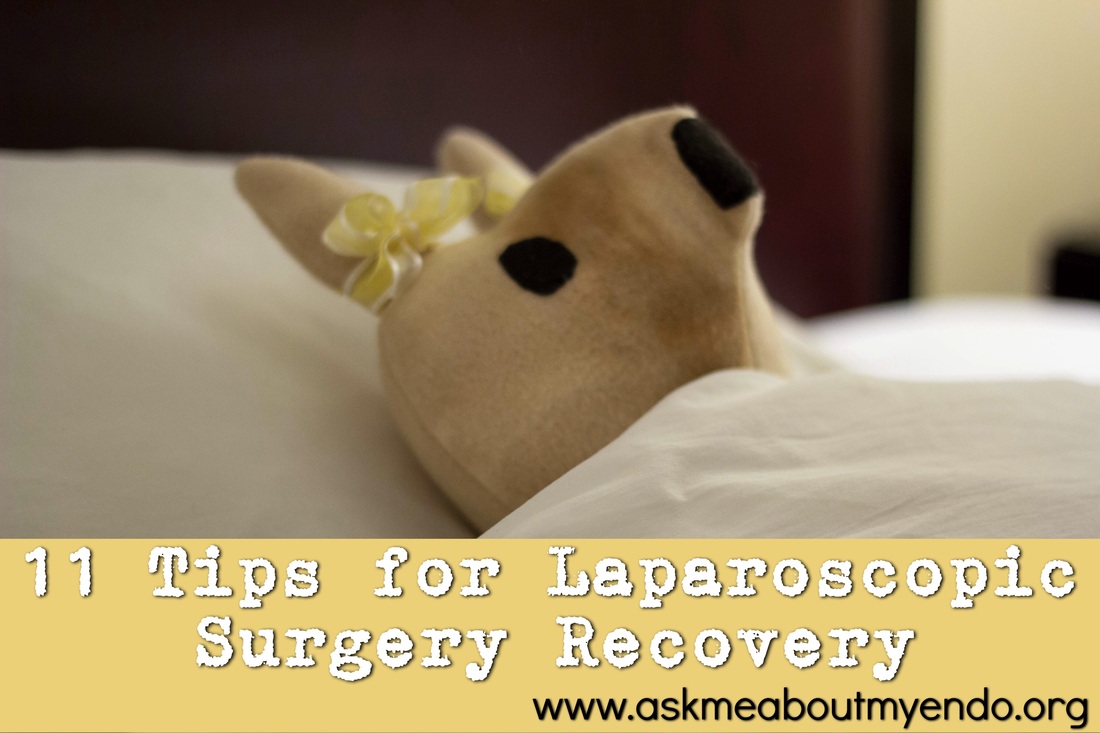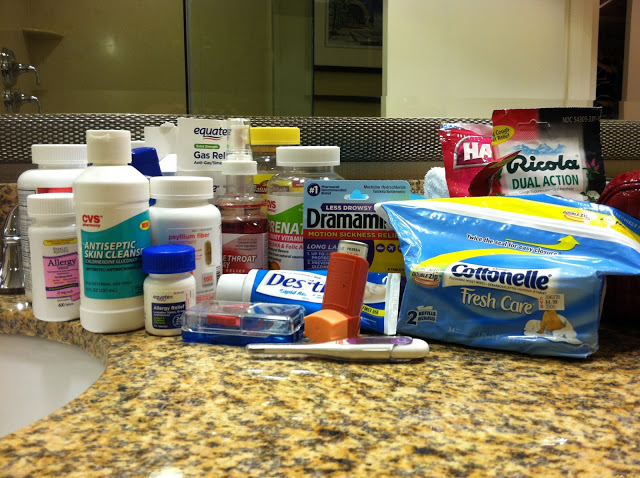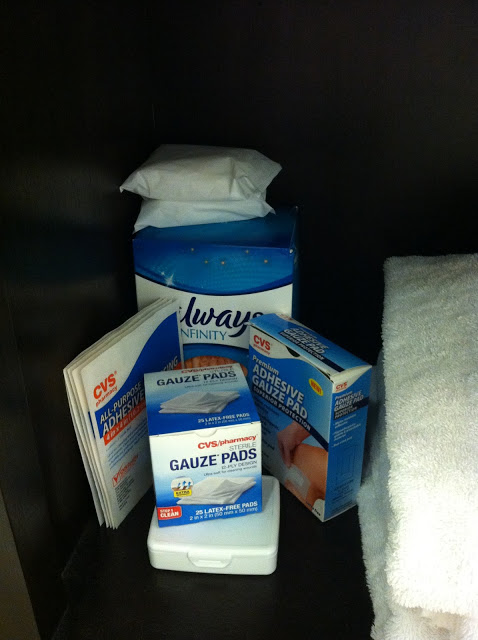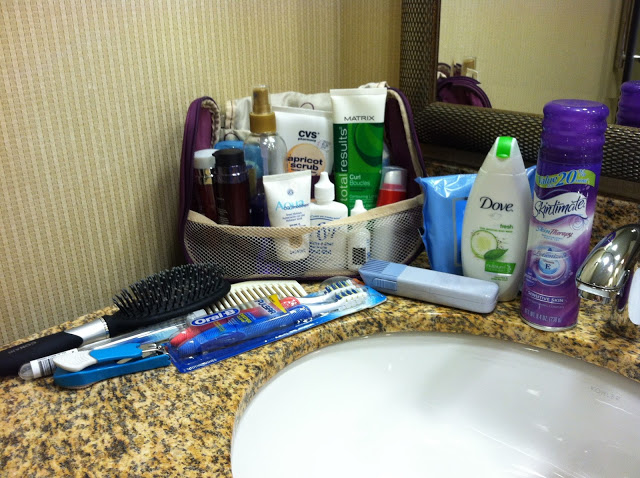1. Be prepared!
Of course, there's no real way to prepare for a last minute surgery, but the more prepared you can be, the easier your recovery will be. Whether you are having local or out-of-state care, there are a few things you can stock up on beforehand so that you will have everything you need at your fingertips after surgery. Reducing trips to the drugs store is definitely one way to keep your recovery period as stress free as possible! Check out our blog and video of what to pack to be prepared.
2. Schedule to have help during the first week
The most important thing to have during your recovery is someone to help you through the first week. This might be a spouse, friend, family member, or even a home health aide. Whether you have a simple diagnostic surgery or a complex case that involves organ removal, you're going to need help getting home, moving around, cooking, cleaning, and monitoring for complications. A caregiver can help keep track of your medications, make sure you get an appropriate amount of exercise and rest, and stock your fridge with healthy meals that can easily be microwaved. If your caregiver is able to work from home, this is a great option so that they do not need to take sick time or family leave.
3. Keep moving...a little at a time!
Although it may sound counterintuitive, getting up and moving every two hours promotes healing and helps eliminate gas pain (gas which your surgeon uses to inflate your belly during surgery may remain and cause pain). Start slow, and make small goals, like walking on your own to the bathroom, then the hall, then the nurses' station. While you're in the hospital, nursing staff will help you with this part, but you should keep it up even after you are discharged. I find it refreshing to go for a daily evening walk, say around the block, once I feel up to it. It really helps to get out of the house, even if it is only for 10 minutes.
4. Be flexible
You may have had some idea of what your recovery might be like when you scheduled your surgery. I can tell you that it can be upsetting to wake up and find out you have several days in the hospital you hadn't planned for, or complications happened and you'll need to wear a drain tube for a couple days. Surgery is unpredictable, even with the most skilled hands, so expecting your recovery to be picture perfect is setting yourself up for disappointment and frustration. Your doctor may have told you that you could return to normal activities after a certain number of days. Don't hold yourself to these expectations. Each surgery is different and each recovery is different (trust me...none of my recoveries have felt the same!). I typically try to plan to be at home for 2 weeks after surgery. Even if you feel better, remember that fatigue is common after surgery. Just like the previous tip, take things one day at a time and make small goals for yourself. If you have a more extensive surgery, you may even want to schedule 4-6 weeks at home after surgery, and may want to return to work part time at first.
5. Have some savings to cover any loss of income
If you are self-employed or do not have paid sick leave, you'll want to make sure you have a financial airbag in place. You don't want to rush yourself back to work before you are completely healed, and having some savings to fall back on will ease this burden.
6. Splint Your Belly
No one told me about this tip the first time I had surgery, and I couldn't understand why I was in increasing amounts of pain. Your abdominal muscles need to heal before they can comfortably support the pressure of holding you upright. Hugging a pillow to your belly or wearing an abdominal binder when sitting up and walking around makes a big difference! Also, you may think that returning to a desk job will be easier than a job where you will on your feet. Not necessarily. Sitting upright puts a lot of pressure on your abdominal muscles, which have been cut during your surgery. Putting too much pressure on your belly before you're healed can become very painful. Like everything, take things slow!
7. Avoid clothes that put pressure on your belly
Long, flowing dresses, leggings and tunics, or drawstring/elastic waist shorts/pants are the most comfortable. I find these to be essential during recovery. I also avoid bras with underwire for a little while. Whatever you wear, just make sure it is comfortable!
8. Pamper yourself when you can
If you know you're having surgery, maybe you get a nice haircut beforehand. Maybe you have a friend come over and give you a mani/pedi while you're resting at home, or check out a new book and some movies from your local library. Be kind to yourself, and do something special that will makes you feel good!
9. Make a little "nest" where you'll be resting
Ok, this sounds silly...but hear me out! After you've had pelvic or abdominal surgery, it can really hurt to roll or be jostled in bed. I make myself a little nest of pillows and bed bumpers so that I am not involuntarily tensing my muscles. I also have some comfort items nearby (Ruby, of course, and my 1 liter double walled mug they gave me at the hospital! I don't know why it comforts me, but it does). Make this space your oasis, full of things that make you feel calm and happy. You might even use some aromatherapy to keep your mood lifted.
10. Don't be afraid to call your doctor
After my first surgery, I called my surgeon's office almost daily. Was it normal to have so much pain? Is this drainage healthy or sign of infection? When do I remove the steristrips? What's that little string in my incision? Obviously, if you have a lot of questions, you should schedule an appointment to speak in person, but the office can answer any quick inquiries pretty easily. While your first instinct might be to ask in an online support group, your health care is ultimately a matter to discuss with your physician. Surgeons typically have an on-call doctor after hours that patients can call with questions. However, if you have a doctor who is not helping you post-operatively, it might be time to find someone who will.
11. Trust yourself!
You know your body best. If things don't feel right, follow your instincts. Listen to your body when it tells you it needs to sleep all afternoon, or you're worried something might be wrong. Keep the lines of communication open with your surgeon, and trust your gut! ;)
I hope these tips help you as you heal! Good luck with your recovery, and please share any tips that have helped you after surgery for endometrisois!





 RSS Feed
RSS Feed